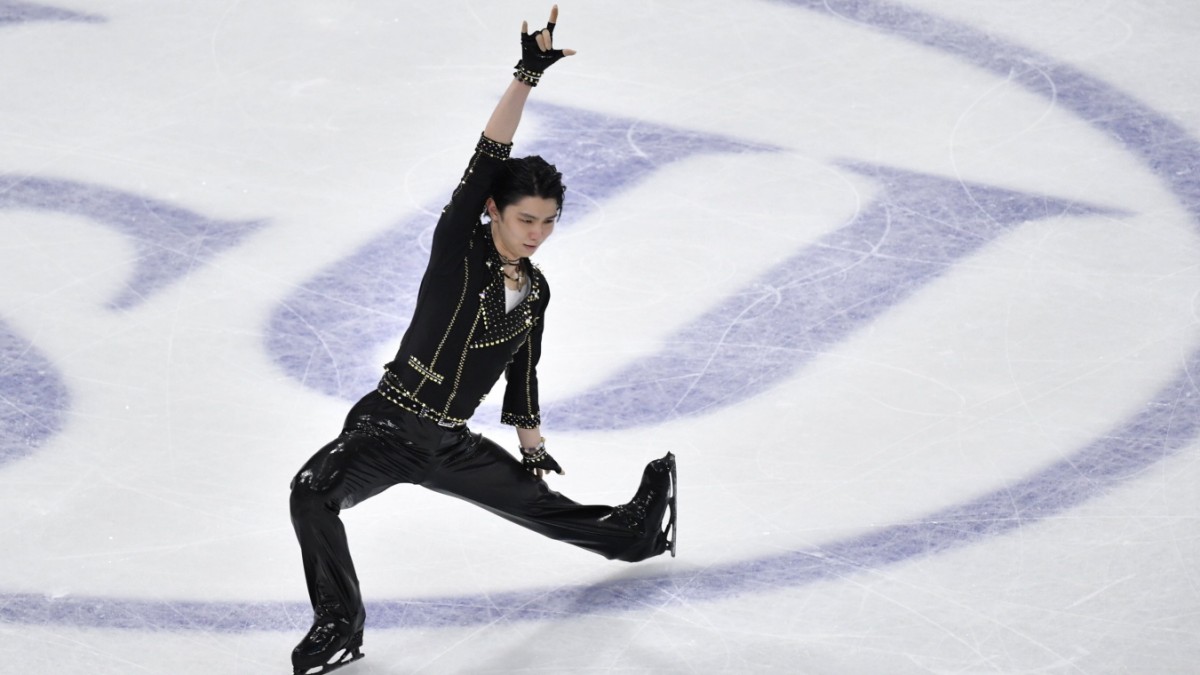Yuzuru Hanyu will never forget how the ice shook. He occasionally explained it to the audience in his own unique style, by dancing, floating, and the use of imagery he conjured up through movement. He gave his 2017 World Championship freestyle performance as a tribute to the victims of the tsunami and earthquake in Japan. Similar to the gala schedule following Pyeongchang Winter Games’ Olympic success. “Notte Stellata,” a brief composition with music by Camille Saint-Saens, is an elegy on skids. A universally understood lament that is expressed without using words.
On March 11, 2011, Hanyu, then 16 years old, was exercising at the Sendai ice rink when he felt the ground shake. He immediately hurried outdoors while wearing skates. His family was temporarily housed in an emergency camp, his parents’ home had become unusable, and the ice rink had been severely damaged or completely destroyed, along with many other buildings. As no one understood how to continue, when his own career was on the rise, he subsequently remarked that so many people would have helped them: “So I wanted to do something for them – and what I can do is ice skate.”
Nineteen of them broke world records.
Hanyu went on to define his sport for the next eleven years, and on Tuesday, at the age of 27, he announced the end of his competitive career. He won the men’s singles gold medal at the 2014 Olympics, becoming the first Asian to do so since 1952. He has won two world championships and four Grand Prix finals. He accomplished 19 world records in points. However, there is no way to quantify what this shy, timid, lanky athlete also accomplished: He mesmerized the crowd and captured their imagination.
He demonstrated that this drill-and-discipline-based sport can have a soul at its most lovely, weightless moments when the music began. Even with figure skating, that art is always a question of giving and taking. Both he and his audience had a mutual understanding of one another. After his second Olympic triumph, hundreds of thousands of people clapped for him in the streets of his hometown of Sendai.
They traveled halfway around the world to see “Yuzu” live, and they occasionally camped out in front of arenas to wait in line when the box office opened. His followers, known as “Fanyus,” created paintings and poems for him. Geographically, this quiet young man is only a rock star in Asia, and figure skating as a whole has declined significantly in popularity. The audience in Pyeongchang even donned bear-ear hairbands to demonstrate their support for the artist, whose mascot is Winnie the Pooh, as yellow plush bears rained down from the stands onto the rink after his performances there. He gave kids’ hospitals bundles of cuddly toys.
The 1989 world champion Midori Ito said of him, “He has an aura, a distinctive charisma.” Even the American Nathan Chen, who recently grabbed the world title and the majority of the records from him, dubbed him the “best of all time” following his own Olympic victory in February in Beijing, and perhaps not just out of politeness. Because Hanyu’s weightless work, which was a combination of the artist and Ariel the Air Spirit, only represented one side. A competitive hardness and sturdiness that stood in stark contrast to a delicate, ethereal nature was how the other manifested themselves. Hanyu was the first athlete to compete with the quadruple Rittberger and has pushed himself to new limits in matches with Chen. Hanyu relocated to Canada shortly after the earthquake to train with former world champion Brian Orser.
He put his faith in everything and took a risk by performing a quadruple axel, the only leap that requires even four and a half revolutions around its own axis, at his last competition in Beijing when he was nearly insurmountably behind after the short program due to an accident with Salchow. The attempt ended in a fall and is now noted in the figure skating style bible with an asterisk as unfinished. At the 2022 Winter Games, Hanyu came in fourth place behind Chen and two other young Japanese competitors.
It was revealed a few days later that he had re-started while still nursing an ankle injury. Three months before his second Olympic victory in 2018, he had a fall that tore the ligaments in his foot.
Hanyu hasn’t given up on the triple Axel yet though. Even when the tournament is over, he wants to guide him toward perfection. Because, as he stated at the press conference on Tuesday in Tokyo, his career as a figure skater is still young. He wants to participate in shows going forward without having to worry about the judges’ opinions: “I want everyone to see how I keep battling.” He believes he still has a lot to offer the world. After giving a heartfelt parting bow, he remarked, “I’m not at all depressed.
